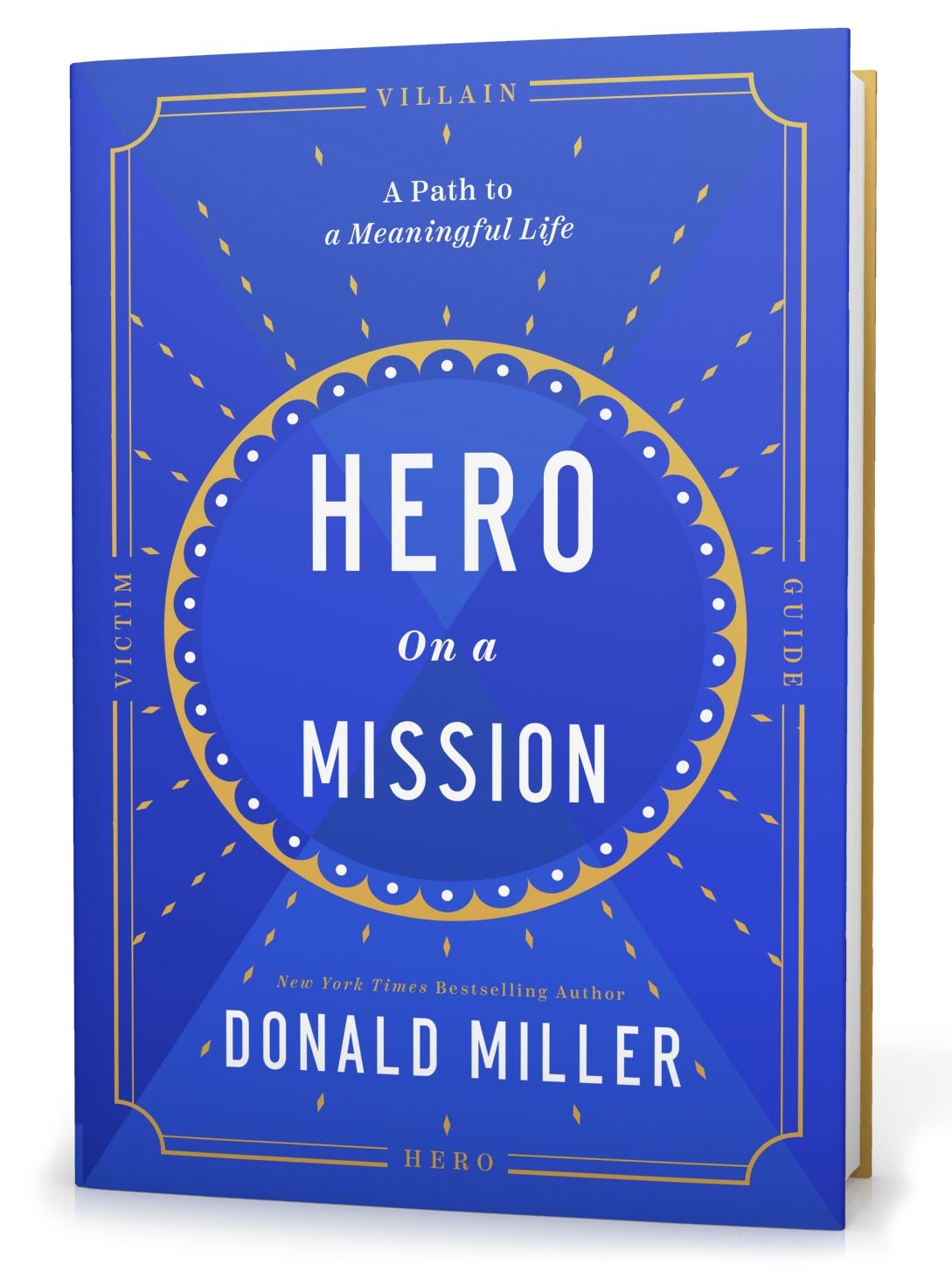Hero on a Mission

For some, Donald Miller is the man behind StoryBrand and Business Made Simple, a guide who helps business owners learn how to grow their businesses. For others, he’s the author of Christian books like Blue Like Jazz. No wonder Carey Nieuwhof imagines people asking, “Wait a minute, Business Made Simple Don, Blue Like Jazz Don, are they actually the same people?”

It’s taken a while, but I’m getting used to Business Made Simple Don. So, evidently, is Donald Miller himself. “I’ll take this version of Don over the previous one any day,” he writes in his new book Hero on a Mission. “He’s happier.”
The new Don wants to help you create a new reality for yourself too.
What’s Good
I like a lot about Miller’s new book Hero on a Mission. Miller argues that stories have four major characters: victims, villains, heroes, and guides. We play all four characters every day. The goal, he states, is to spend more time living as a hero.
The way to live as a hero is to choose our own agency. We are not victims; we can choose a life of meaning. Miller draws on the ideas of Viktor Frankl to describe the three things we need to live well:
- We must want something.
- We must engage our challenges.
- We must learn from mistakes and misfortunes.
Miller walks us through the process of writing our own eulogy so we can imagine who we want to become, and then working backwards to create a ten-year vision, five-year vision, one-year vision, and goals. He also offers a daily worksheet and morning routine to help translate all of this into meaningful action.
I’ve read a lot of books like this. Miller’s framework stands apart. He manages to offer us a tool that’s both simple and powerful at the same time. In just a few hours, you can complete the steps he outlines, and you will benefit from having a clearer idea of who you want to become and how to get there. The free planner pages or and the online tool (available at a small cost) are also very good.
A Concern
I’m grateful for the new Don. But a few parts of this book gave me pause. For instance:
Who is writing our stories? Is God writing our stories? Is fate writing our stories? Is the government or our boss or the church writing our stories? … For practical purposes, it is my position that the author of our stories is actually us. Perhaps the single greatest paradigm shift I’ve had as a human is this idea: I am writing my story and I alone have the responsibility to shape it into something meaningful…
Here is a hard truth: if God is writing our stories, He isn’t doing a good job … What’s more, if God is writing our stories, He isn’t doing a fair job either.
Miller’s statements contain some truth: our choices are meaningful, and we need to take responsibility for them. But they’re also overstatements. To use Miller’s story idea, the characters (victims, villains, heroes, and guides) take action, but they don’t realize there’s an author or director. We do. Our actions matter, but not as much as the one who controls the story. Scripture warns us against overestimating our control over our lives (James 4:13-17).
I still recommend Hero on a Mission. It contains a very helpful framework and perspective, and I’m using it myself. But I’m grateful that God’s also co-writing our stories. Recognizing God’s sovereignty doesn’t diminish our responsibility, but it does help to counteract the potential of hubris. After all, “You do not know what tomorrow will bring” (James 4:14).
Own your role. Go after important things. Think about the person you want to be when you die. And recognize God’s sovereignty over your life. Realize how little you control and how short life is, and live humbly and as well as you can with the time you have. Who knows how God will use you?






